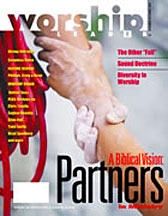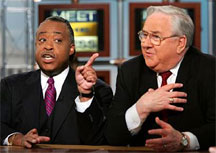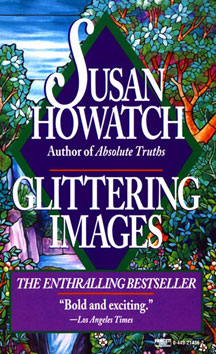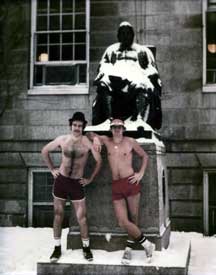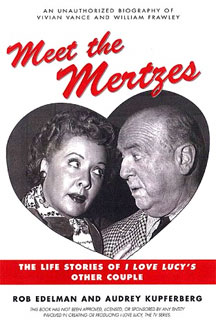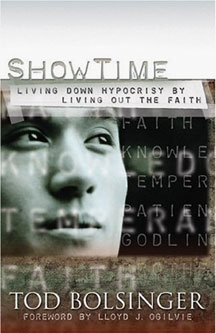| |
Excursus: A Man You’ve Got to Know
Posted at 10:00 p.m. on Tuesday, November 30, 2004
I’m interrupting my current series, “Advent and the Christian Year” for a very good reason. I’ll get back to the series tomorrow.
So far today I’ve had two friends e-mail me an article in today’s New York Times (free registration required to view article). It’s an op-ed piece by David Brooks called “Who Is John Stott?” Brooks, who is Jewish, is introducing Stott, a Christian Englishman, to the wider American public. Thanks, David Brooks! (And thanks to Jim Foster and Bill Maier for sending this article to me.)
| Brooks begins his piece by bemoaning the recent fiasco on “Meet the Press,” in which Tim Russert tried to bring together representatives of Christianity to talk about religion in public life. Among those on the panel were Jerry Falwell and Al Sharpton. Of these two paradigms of Christianity, Brooks writes: “Inviting these two bozos onto ‘Meet the Press’ to discuss that issue is like inviting Britney Spears and Larry Flynt to discuss D. H. Lawrence. Naturally, they got into a demeaning food fight that would have lowered the intellectual discourse of your average nursery school.” Brooks may have a point here, though if I were Britney Spears and Larry Flynt I’d consider a libel suit. Imagine, being compared to Falwell and Sharpton! |
|
| |
Rev. Al Sharpton lectures Rev. Jerry Falwell on the finer points of theology and public policy.
|
Brooks argues that John Stott would be a far better representative of evangelical Christianity – or of any Christianity – than Falwell or Sharpton. (Yes, indeed, but he’s much less entertaining!) Then, realizing that most American are unfamiliar with John Stott, Brooks spends the rest of his column introducing the man, some of his ideas, and his Christ-like demeanor. To all of this I offer one, big, whopping “Amen!”
I want to add a personal story to Brooks’s introduction of Stott. I only met John Stott one time, but this one meeting was truly a watershed moment in my life. It also illustrates the kind of person John Stott truly is. (I’ve excerpted this story from my book, Dare to Be True.)
As a college freshman I took my first university-level class in the Bible. The professor was a wise, articulate, learned scholar whose knowledge of the New Testament impressed me just as many of his opinions distressed me. He contradicted assumptions I had made about the New Testament and backed up his views with persuasive evidence. Though he didn’t deny traditional faith in Christ, he was skeptical about how much that faith could be based on Scripture. By the end of the term I found myself doubting the truthfulness of the Bible. I hesitated to examine my doubts too closely, however, because I was afraid that serious inquiry would further undermine my faith.
I’m not the first Christian to have had such an experience, and I’m not the last. Most of us encounter ideas that deny fundamental tenets of our faith. At this point, some Christians begin to worry that serious study undercuts serious faith. They discourage intellectual investigation, preferring what they call “simple faith.” Out of fear, they stop seeking truth and instead bury their heads in the sand of rigid ideology or misty-eyed sentimentality.
I can understand this reaction because I have sometimes wanted to keep my own intellect safely disengaged. During that Bible course I began to wonder if I should dispense with the academic study of the Bible. Yet I realized that I would never be satisfied with my faith if I suspected it was intellectually untenable. Still, I feared that my quest for historical truth would chip away at my belief.
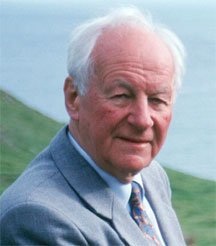 |
Then God provided help in the form of Dr. John Stott. A highly respected Christian thinker and expert in the New Testament, Dr. Stott visited Harvard in the latter part of my freshman year. A friend hosted an informal dessert gathering and invited me to attend. Here was my chance to talk with someone who could understand my dilemma.
When another student finished a conversation, I finally had my chance. “Dr. Stott,” I said, “I’m taking a New Testament class and much of what I’m being taught contradicts what I believe about the Bible. I’m beginning to wonder if it’s unwise to study Scripture in an academic way. I’d like to take more classes in New Testament, yet I’m afraid that what I learn will undermine my faith. What do you think I should do?”
“I can understand your conflict and your fear,” Dr. Stott began, “because I’ve felt them myself. Many of the popular theories in New Testament scholarship do challenge orthodox Christianity.”
“But,” he continued, “you don’t have to be afraid. Let me tell you something that will give you confidence as you study: All truth is God’s truth. There isn’t anything true about the Bible that God doesn’t already know. You don’t have to fear that if you dig too deeply you’ll undermine genuine Christian faith. You may indeed discover that some of your beliefs aren’t correct. In fact, I hope you do make this discovery, many times over. That’s what happens when you live under biblical authority. But you never have to be afraid of seeking the genuine truth because all truth is God’s truth.” |
John Stott (above), in a recent picture. No, to my knowledge he's not related to the recently deceased historian Stephen Ambrose (below). They both wrote a bunch of great books, however. |
|
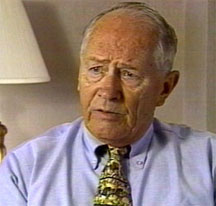 |
With John Stott’s encouragement, I began a lifelong journey of seeking the truth about Scripture. I did indeed take more New Testament classes, ultimately earning a Ph.D. in this field. I came to see how much of what I was being taught in that introductory course reflected the skeptical, anti-supernaturalistic assumptions of my professor, not the data of the New Testament itself. (end of excerpt)
Perhaps most importantly, John Stott was the first person in my life to teach me that all truth is God’s truth. This has guided my life, in graduate school and beyond. It gives me confidence to ask hard questions of my faith, or to pursue the truth even when it is unpopular. In retrospect, I can see how God used that brief encounter with John Stott to make a huge difference in my life. To this day I’m thankful for Stott's broad ministry, as well as his impact on my life.
If you’d like to have greater exposure to Stott’s thinking, I’d highly recommend his recent book, Why I Am A Christian. This book will speak to believer and non-believer alike.
Home
A Shocking Story: Euthanasia of Children in the Netherlands
Posted at 5:55 p.m. on Tuesday, November 30, 2004
I'm currently in the studio of Hugh Hewitt doing a radio interview on a shocking story from the Netherlands. In a hospital there, doctors have been euthanizing children who are struggling with serious illness. The implications of this practice are truly chilling. Increasingly, we who value the sanctity of each human life will be called upon to defend our belief in the face of pervasive moral relativism.
An additional note: One of the callers to Hugh's show raised an objection to the position that Hugh, David Allen White, and I were taking in opposition to the euthanizing of children. His objection went something like this: "You folks are always so concerned about the sanctity of life. But what about the quality of life? Isn't it time we tried to preserve the quality of human life, and not just the quantity?"
I have heard this "quality of life" objection frequently thrown in the faces of pro-lifers. "You people care so much about keeping fetuses alive," it is claimed, "but you neglect the quality of life for the babies that are born. Shouldn't you folks care more about issues of poverty, justice for the poor, and so forth, if you're going to be pro-life?"
Let me say that sometimes this objection is well-founded. There are some pro-lifers who seem to care only about the birth of the baby, not about what the baby will experience once he or she is born. At least this is what their rhetoric reveals. But, in my experience, most pro-lifers are also concerned for the quality of life for the baby and the mother. As indeed they should be.
But I want to address the caller's objection a bit more philosophically.
First, the "sanctity of life vs. quality of life" issue is often posed as an either/or: either you care about the sanctity of life, or you care about the quality of life, but not both. This is a logical error. One can, and I would argue that one should, care about both. It's not a question of one or the other.
Moreover, I would contend that a concern for someone's quality of life is ultimately dependent upon a commitment to the sanctity of that person's life. If you believe that each human being has value, then you'll care about what that human being experiences in life. But if you devalue human life, if it's merely an accident of evolutionary processes, if it's something that can be terminated by the will of the powerful, then why should you care about the quality of life experienced by some human being for whom you have no particular feelings? For example, like many Christians in America, I am deeply concerned about what's happening with millions of AIDS orphans in Africa. But I am so concerned precisely because I believe that each child is sacred, that each life is a gift of God. If I abandoned my commitment to the sanctity of life, then, in the end, why should I care what happens to people who live far away from me, whom I will never personally encounter? So, it seems clear to me that a concern for the quality of a person's life depends, to a great extent, on a commitment to the sanctity of that person's life.
One final comment. Pro-lifers are often criticized for failing to care about the quality of life of the babies who are born into poverty or other difficult situations. Whether or not this is a fair criticism, it seems to me that the critics haven't exactly shown much concern for the poor either. In the last election, I heard a lot about protecting a woman's right to choose from candidates on the left, but I heard very little about the need to improve the condition of the poor, in this country or in other countries. Caring for and empowering the poor may not be a hot political issue, but it is one that all persons of conscience -- and Christians in particular -- should hold close to their hearts.
Home
Modern Novels I've Read More Than Once
Posted at 12:10 a.m. on Monday, November 29, 2004
Hugh Hewitt asks the blogosphere an interesting question: Which modern novels have you read more than once? I've had to rack my brain a bit on this one, since I generally don't read novels more than once, especially modern novels. I have re-read certain classics by Charles Dickens, Mark Twain, etc., but these don't count as modern. Here's what I've come up with (not including the Hardy Boys mysteries that I read as a child and re-read to my son a few years ago):
To Kill a Mockingbird by Harper Lee. One of the finest novels ever written, and by an author who wrote only one novel! I may just have to read this again.
Glittering Images by Susan Howatch. The first in the Starbridge Series of novels that focus on fictitious leaders of the Anglican Church. Howatch spins a good mystery tale, yet with profound theological, psychological, and spiritual touches. Howatch isn't everybody's cup of tea, but if you like Glittering Images, you've got five (plus a couple others) similar novels to look forward to. I've read several of these books more than once.
My Name is Asher Lev by Chaim Potok. One of several novels by Potok that chronicle the experience of Jews in America. A gripping story with considerable religious and psychological depth. I highly recommend Potok's novels. |
|
|
The Chronicles of Narnia by C.S. Lewis. Lewis's series for children continues to move many adults, including me. I may have read The Lion, the Witch and the Wardrobe four or five times (to myself and to my children). If you haven't read this series, you owe it to yourself, no matter what your age.
A Christmas Carol, by Charles Dickens. Okay, okay, this shouldn't count because: 1) It's not modern enough, and, 2) It's not really a novel, but more of a novella. However, given the season of the year, A Christmas Carol is surely worth a mention. A couple of years ago I decided to read this short book every year around Christmas. I'm glad I did.
Home
Signs and Wonders Today?
Posted at 9:30 p.m. on Saturday, November 27, 2004
The introduction to my sermon: "Awe"
When I was in high school, a few of my friends starting going to a Pentecostal church where people spoke in tongues, raised their hands in worship, and claimed that people in their congregation regularly experienced physical healing when they received the laying on of hands in prayer. I was both intrigued and troubled by what my friends reported to me. I was intrigued because I wondered what it would be like to experience a more supernatural kind of the Christian life. I was troubled because I wondered if my friends were being duped. And if they weren't being deceived, then I was missing out on an exciting part of following Jesus. In my church only a few borderline people spoke in tongues, raised their hands in worship, and claimed that prayers for healing actually worked. The vast majority of us spoke in English, kept our hands nicely folded in worship, and prayed that God would guide the doctors' hands - the Presbyterian version of prayers for healing, I reckoned.
When I left for college, I figured that I had left far behind my questions about the supernatural aspects of Christianity. After all, who at godless Harvard would be into such an experiential and edgy kind of Christianity? Well, lots of Harvard students, as it turned out. A whole bunch of my fellow undergrads were going to an Episcopal church about an hour from Cambridge, where, once again, they spoke in tongues, raised their hands in worship, and claimed that God regularly healed people when they laid hands upon them in prayer. So, once again, I was both intrigued and troubled.
This time I decided to figure out for myself whether what my friends experienced was a bunch of hooey or an acceptable and even normative part of Christianity. Did I visit the charismatic Episcopal church with my friends? you might wonder. Of course not! Far too risky! Far too experiential for me! Instead, I decided to do a serious biblical and theological study in order to determine once and for all what the Bible really taught about miracles such as speaking in tongues, prophecy, and healing. Were they for today? Or not? And if they were for today, how could I know if what people experienced was genuinely from God or not? Moreover, what was the point of it all? |
|
| |
My roommate Henry and me during our freshman year. We didn't have to leave campus to do strange things.
|
I launched my investigation by studying many relevant biblical passages and by reading commentators on all sides of the issue. One of the major passages I studied was, as you might guess, Acts 2. Among the commentators, the watershed question was this: Does Acts 2 present a picture of something that happened once-not-to-be-repeated? Or does Acts describe experiences that can and should be common to all Christians everywhere?
For answers to these questions, and for the continuation of this sermon, click here.
Home
A Purpose for Living
Posted at 9:30 p.m. on Saturday, November 20, 2004
Introduction to my sermon "Created for Praise Beyond Ourselves"
Did you catch the recent headlines about Ezra Nicholas? The story ran a few weeks ago. It seems that Mr. Nicholas set a new world record, which, according to the official judges, will secure him a place in the Guinness Book of World Records. And what, you may wonder, did Mr. Nicholas accomplish? Did he hit a golf ball farther than any other person? No. Did he set the world record for most push ups in a minute? No. Nothing as trivial as this, let me assure you. Mr. Ezra Nicholas set the record - Are you ready? -- for the most hamburgers stuffed into a mouth without swallowing. No kidding. As onlookers shouted "Shove it in!, Shove it in!" 19-year-old Mr. Nicholas filled his mouth with three and one-fifth McDonald's burgers, surpassing the old record by that one-fifth.
After he passed the former record, Ezra Nicholas jumped up, pumped his fists in the air and shouted, "Yes! I am the Burger King!" Later, after he calmed down, he commented sagely: "I just thought to myself, 'I've got to do this, I've got to do this.' I'm on top of the world right now, because everyone's going to know that I can shove more than three burgers in my mouth!"
Imagine that! Imagine the response Mr. Nicholas will get as he strolls down any street in America. Men will bow. Young women will swoon. Mothers will thank Ezra for inspiring their children to greatness. More than three burgers in his mouth at one time! Who'd have believed it? |
|
| |
Mr. Nicholas demonstrating his talent for the world
|
It's easy to laugh at Ezra Nicholas's accomplishment. After all, in the final analysis, just how important is it really to own the world's record for most burgers stuffed in your mouth at one time? It's a little hard to imagine that it was for this purpose that Mr. Nicholas was born. Guinness Book of Records or not, you've got to admit that his record verges on the ridiculous.
Yet before we laugh too scornfully at Ezra Nicholas, we might want to think twice about our own lives. Are we living for what really matters? Are we investing our time, our money, indeed our very lives in the things that matter most? Or are we squandering our lives by filling our mouths with burgers, so to speak?
The Progress Paradox
I've been reading a fascinating book recently. It's called The Progress Paradox: How Life Gets Better While People Feel Worse. The author, Gregg Easterbrook, is a senior editor at the New Republic. This is not a Christian book per se, though I don't know anything about Mr. Easterbrook's religious beliefs. He's writing as a social analyst and commentator, as one who is taking a new look at the cold, hard facts of life in America. And what Mr. Easterbrook has discovered is both striking and deeply unsettling.
In a nutshell, The Progress Paradox demonstrates beyond a shadow of a doubt that by virtually every objective measure, we live today the best world ever. We Americans have more money, more comforts, more security, more space, and more freedom than any people throughout human history. We have better education, better medical care, better homes, and better lives - objectively measured - than any people who have ever lived.
You may find this hard to believe, of course, because many people these days think that life is worse than it has been in the past. We believe, for example, that crime and pollution and the cost of living are skyrocketing. But, as Easterbrook shows in detail, in all of these categories we're much better off today than we were fifteen years ago. Even factoring in the fear of terrorism, we should feel better about our lives than any people who ever lived. But, in fact, we often feel worse.
Easterbrook goes on in The Progress Paradox to explain why this is the case and to suggest some remedies, but I don't have time to go into that here. My point, however, is use Easterbrook's analysis to pry the lid off of our hearts, and ask: Are we progressing in life, only to feel worse? Are we investing our lives in that which will bring the greatest return? Are we doing that for which we have been created and redeemed?
Why Am I Here?
Today we encounter some of life's most basic questions: Why am I here? Why do I exist on this earth? Am I just an accident of natural processes, or is there some greater purpose to my life? And if there is such a purpose, what is it? To continue reading sermon, click here.
Home
Links & Laughs, Volume 5: Practical Christian Living and Potty Talk
Posted at 10:30 p.m. on Friday, November 19, 2004
| If you’re new to my website, I should explain that I tend to blog on serious subjects during the week, with lighter blogging on the weekend. Next week I’ll put up a special Thanksgiving series (beginning late Sunday evening for Monday’s readers). |
Great Links: How Should We Live?
Three of my favorite bloggers are dealing with more or less the same issue, but from quite different and fascinating perspectives. The issue: How should we live in today’s world as Christians? What does it mean, not just to play church, but really to live as disciples of Jesus Christ?
Mark Sides of Sidesspot in an attorney in Minnesota. He has put up an honest, probing post called “Challenges I Face in My Walk.” Mark isn’t suggesting easy answers, or even answers at all. He’s asking tough, crucial, timely questions.
Tod Bolsinger of It Takes a Church has been running a series on what I would call “practical Christianity.” But Tod’s answers are the not standard ones. Plus he has a great way of putting things. Where else are you going to find a Presbyterian pastor talking about “The Ricardos, The Mertzes, and Pie.”
Craig Williams of Table Talk approaches the question of how we should live as Christians from an ethical perspective. His comments on Christian morality are timely and shouldn’t be missed. |
|
| |
Fred and Ethel Mertz, in real life William Frawley and Vivian Vance. The bad news is that Frawley and Vance really couldn’t stand each other. The good news is that they were great actors who didn’t show their true feelings. See the recent book called Meet the Mertzes. |
Potty Talk
Okay, okay. I know my mother told me never to use “potty talk.” But I simply can’t resist. The headlines have forced me to it: “World Toilet Summit Begins in China.” Truly. No joke. Over 150 scholars, designers, and engineers from around the world gathered in Beijing this week to talk about, well, toilets. Now that’s some serious potty talk.
The conference is sponsored by the World Toilet Organization. Until recently, I must confess, I didn’t know there was a World Toilet Organization. So I decided to check out their website. I figured I had much to learn about toilets.
 |
The first thing that struck me about the WTO website that it was cool: well-designed, with lots of helpful information. It was easy to find lots of information about the World Toilet Summit. I downloaded the program for the summit, where I found some fascinating lectures and workshops, including: |
|
Chinese bathroom shaped like a lady bug
|
|
|
Urinals with video screens for each user
|
The Toilet Culture of Japan (Comment: Did you know Japan had a toilet culture?)
Start Up a Toilet Association (Comment: A great project for your kids this summer when they get bored with lemonade stands.)
Generating Revenue Through Advertisements in Good Toilets (Comment: Whatever you do, never advertise in bad toilets.)
How Loo of the Year Awards Translate Good Toilets as Marketing Tools for their Owners (Comment: I wonder how I can enter my toilet for next year’s award? Maybe a new church growth strategy for 2005? I can see the headline now: "Irvine Pres Wins Loo of the Year Award.")
The Humanized Toilet (Comment: Sounds rather Frankensteinian to me. Do you really want a "humanized" toilet living in your house?)
Designing Out Crime in Toilets (Comment: What’s the crime? Leaving the seat up after you’re done? In fact a new story today has the headline -- New Crime Grips Alabama: Potty Tipping. Obviously they need to do some new designing in that state.)
The Human Product Interface Design of the Facilities in Public Toilets (Comment: Interface? Are you sure you want to interface with a toilet? Don't we need a better verb for toilet-human interaction?)
Toilets as Tourism Attraction (Comment: Now that’ll get ‘em to your resort. Especially if your bathrooms look like lady bugs.)
Hey, come to think of it, I know of a California hotel that draws visitors because of its toilets. Really. (Yes, I know, only in California!) The Madonna Inn in San Luis Obispo is famous for its picturesque urinals, one of which looks like a cave. It even has a waterfall. Bet they don’t have that in your state!
I actually had one of my own greatest bathroom shocks in this very place. While using the facilities, a mixed-gender tour began to enter the bathroom. No lie! When I yelled they graciously waited until I was done to finish the tour. |
|
 |
Speaking of toilets and tourists, I had another shock this past summer in the Frankfurt airport. As I went in a restroom to use the facilities, I was stunned to see a familiar logo on the clean white toilet: Villeroy & Boch. |
|
| Why was this shocking to me? Because I’d always associated this company with fine china and stoneware. In fact my wife and I have a set of Villeroy & Boch’s Petite Fleur pattern. I had always thought of this as something special. But now I know that our plates are related to toilets in Germany. Go figure! I’ll just have to forget this next time we pull out the Petite Fleur. |
Home
Sent on a Mission
Posted at 9:30 p.m. on Saturday, November 13, 2004
Introduction of my sermon "Sent to a People Beyond Ourselves"
When I was eighteen years old, I was sent on an exciting mission. In the summer before I started college, I worked for a small company that produced cassette recordings of professional conferences. Usually my job was to manage the home front, serving as a secretary, customer service rep, and occasional technician. But on one occasion my boss, who usually did all the traveling and live taping, had double booked himself. So while he went off to do a convention in San Francisco, he sent me to Minneapolis to cover a hotel sales managers convention in a downtown hotel.
| This was quite a thrill for an eighteen year old, as you can imagine. I flew to the Twin Cities, had my very own hotel room, supervised my very own Kelly Girl who covered the sales table, mastered the peculiar details of taping three simultaneous sessions that met in different rooms, and even had my own expense account for the trip. This was heady stuff for a recent high school grad! My mission was simple: to bring back tapes of all the convention meetings, along with the sales records and income. During that three-day mission I had a great time pretending to be a grown up as I fulfilled my mission. And, to top it off, on the return trip I got bumped up to first class in a 747. Now that was the life! I was pretty jazzed that my boss sent me on that mission. |
|
| |
Minneapolis at night
|
Sent on a Mission by Jesus
Well, in a matter of speaking, our Boss has sent us on a mission. As individual Christians, and as a church of Jesus Christ, we have been sent together on a mission. Our Scripture text today makes this abundantly clear. The Great Commission in Matthew 28, once given to the most intimate band of Jesus's followers, is also given by God to us. This is our commission as well as theirs.
Today I want to unpack four critical points in the Great Commission, and then draw out some practical implications for our church today. To continue reading this sermon, click here.
Home
Links & Laughs, Volume 4
Posted at 9:30 p.m. on Friday, November 12, 2004
| If you’re new to my website, I should explain that I tend to blog on serious subjects during the week, with lighter blogging on the weekend. I’ll be finishing up my series “Was Jesus Divine?” next week. In the meanwhile, for your enrichment and enjoyment . . . . |
New Link Worth Checking Out
I’m pleased to announce that Rob Asghar now has a website. If you’ve been reading my blog for a while, you’ll recognize Rob’s name. He has a new blog he’s calling “Dime Store Guru: News, Views, Reviews & Refuse.” Rob is a lively writer and creative thinker. I expect very little refuse on this site! Part of what makes Rob’s voice so distinctive is the fact that he is a thoughtful, articulate, Democrat, former Muslim evangelical Christian. His opinions, even if you disagree with them, are well-formed and expressed. His voice adds greatly to the blogosphere.
Laughs
When I was growing up, the local television station would run Japanese monster movies in the evening, showing the same film for five nights in a row. I’d try to catch as many as possible. Godzilla and his friends (Rodan, Mothra, etc.) became my childhood friends.
When my son Nathan was about six years old, I was pleased to introduce him to Godzilla, not the recent PG-13 version, but the classic, 1956, black and white version starring Raymond Burr (yes!). Nathan quickly shared my fascination with the giant lizard, which delighted me no end. But, that night in our Saturday evening worship service, my delight turned to embarrassment. Our worship leader invited members of the congregation to pray out loud, praising God for his holiness. Several worshipers prayed appropriately reverent prayers. But then Nathan yelled out, “Thank you, Jesus, that I could see the Godzilla movie today!” Not exactly what the worship leader had in mind, or what Nathan’s dad had expected.
| I was reminded of this episode in my pastoral and parental life by a news story that caught my eye recently: “Balloon Ushers in Monster Conference.” It turns out that Kansas University hosted a three-day academic conference last month, focusing on the meaning of Godzilla. The occasion was the 50th anniversary of the release of the first Godzilla film. (It was the Japanese version, called Gojira. The American version with Raymond Burr came out in 1956.)Why this conference? According to University of Kansas history professor Bill Tsutsui, "A subject doesn't have to be dry and boring to be enlightening and instructive. Godzilla is good fun." Amen to that, say I! Scholars came from all over the country to this conference, from schools such as Duke, Vanderbilt, and Harvard. (Maybe I should up my contribution to the alumni association.) With so many university professors studying such silly things these days, at least Kansas University is on the right track. |
|
| |
Godzilla on top of Liberty Hall in Lawrence, Kansas. The monster is visiting the academic conference called "In Godzilla's Footsteps."
|
Of course scholars often go to great lengths to prove the obvious. Take, for example, a recently released study published in the New England Journal of Medicine. A group of doctors in Germany, having examined 691 subjects, came to the following conclusion: “Transient exposure to traffic may increase the risk of myocardial infarction in susceptible persons.” Translated into ordinary English: “If you’re caught in bad traffic, your odds of a heart attack increase.” Now I don’t know about you, but I find this conclusion utterly, completely obvious. When I’m stuck in a traffic jam, I can feel my blood pressure rise and my heart pound.
But, in defense of the German scholars, they did discover some surprising correlations. Not only are you more likely to have a heart attack if you’re driving a car in traffic, but the same is true if you’re riding a bike or even riding on a bus! In fact, you’re even more likely to have a heart attack if your bus or your bike is caught in traffic than if you’re driving. This suggests, according to the doctors, that the real problem may not be stress, but the effect of pollution on the cardio-vascular system. So, who knows?
 |
If you really want to have a heart attack while driving, consider negotiating the streets of Toyko or New York City while Godzilla is on the prowl. That will get you for sure.
Home |
|
Godzilla pays a visit to Tokyo in the 1954 original film, Gojira.
|
|
|
The foot of Godzilla, making driving in New York a bit difficult. From the 1998 film.
|
Show Time: Another Teaser
Posted at 10:00 p.m. on Saturday, November 6, 2004
Yesterday I put up a couple of excerpts from Tod Bolsinger’s new book, Show Time: Living Down Hypocrisy by Living Out the Faith (Baker, 2004). This was a follow up to the interview I did with Tod last weekend. Today I’m going to post two more excerpts from Show Time. I know you’ll enjoy them.
Show Time excerpt: No Nagging Required
Are you familiar with the comic strip “Broom Hilda”? Broom Hilda is an ugly yet somehow lovable witch. Her friend Irwin, is a troll whose innocence and naiveté make him truly endearing. One day Broom Hilda asks her friend, “Irwin, what would be the best way to make the world a better place?"
Irwin thinks for a moment and replies, “Start with yourself! Give up your bad habits and evil pleasures. Then when you’re good, you’ll stand as a shining example to others!”
Broom Hilda swiftly responds, “What’s the second best way?”
When our text urges us to support our faith with goodness, it is giving us the same advice as Irwin. Effective faith does not begin with trying to get others to be good, but to be better people ourselves. It doesn’t begin with nagging others, but with our bringing forth the kind of virtuous living that is commendable to all people. |
|
| |
Broom Hilda, in the flesh, well, sort of. |
One of the most interesting things in [2 Peter 1:3-10] is the author’s choice of a word for “goodness”. He doesn’t choose the usual word that immediately signifies to God’s people religious goodness, or goodness that comes through obedience to God. Instead he uses a word that shows up only one other time in New Testament character lists (Phil 4:8). It is a more “secular” word, a philosophical word, the classic Greek word for virtue, arete.
In other words—and this is very important—we are to live lives that even those who don’t believe in God will say is a commendable way of living. We need to live lives that even an unbeliever would respect. This is why I translate this phrase as “from your faith, produce virtue that is commendable by the world’s best standards”
Again, the word “virtue” in Latin comes from the word virtus, where we get the word, virility. It means literally, manliness, and implies a kind of potency for living that inspires life as it is meant to be lived. Peter is saying that the church, the people of faith, should demonstrate to the world how all humans are meant to live.
Unfortunately, this is seldom the case. In their study of American Christianity, George Gallup, Jr. and Jim Castelli identify what could be called an “Ethics Gap” in the church, the discrepancy between Christians’ degree of stated convictions and our consistency in living them out. They write, “While religion is highly popular in America, it is to a large extent superficial; it does not change people’s lives to the degree one would expect from their level of professed faith.”
To give just one example, according to one study by a Christian researcher in 1999, evangelical Christians now have a slightly higher rate of divorce than non-Christians. We who think of commitment, vows and covenant relationships as part of the life of faith, are just simply not living as commendably as we would hope.
In Jesus’ own teaching, (see for example the parable of the Good Samaritan in Luke 10) he often would goad religious people by holding up the example of those unbelievers who were by their actions a better example than believers. While the religious leaders argued about who was worthy of one’s care and concern (“Who is my neighbor?”) the despised, mixed race and theologically heterodox Samaritan acted with the kind of compassion and personal care that leads Jesus to conclude in Luke 10:37, “Go and do likewise.”
Throughout the New Testament, Christians are exhorted to commendable living:
Live such good lives among the pagans that they will see your good deeds…and glorify God. (1 Peter 2:12, NIV).
Let your light shine before others, so that they may see your good works and give glory to your Father in heaven. (Matthew 5:4, NRSV)
 |
Now let’s be clear, this desired goodness doesn’t come over night and books written and sermons preached won’t instantly produce it. In Mere Christianity, C.S. Lewis compares becoming virtuous to becoming an athlete. He writes that even a bad tennis player might make a good shot now and then by sheer luck. But a truly good player is someone who has practiced making good shots for years: “Whose eye, muscles and nerves have been so trained…that they can now be relied on.” In the same way, someone who perseveres in doing what is right develops a reliable character. They live commendably regularly and over time demonstrate Christ’s goodness to a watching world. |
Tod doesn't spend too much time practicing his tennis stroke these days, but he does practice his casting. Here he's mastering the Snake River in Idaho. |
|
MDR Conclusion: Tod has a unique way of combining careful biblical interpretation, insights from classic Christian writers, and popular application. Show Time, apart from being insightful and challenging, is an enjoyable read. It’s full of lots of fascinating stories, well-narrated. So, if you’re looking for biblical wisdom on how to live in the real world, and if you’d like to get that wisdom in a compelling package, then buy a copy of Show Time.
Home
Show Time: A Teaser
Posted at 10:00 p.m. on Friday, November 5, 2004
Last weekend I posted an interview with Tod Bolsinger, author of the great new book Show Time: Living Down Hypocrisy by Living Out the Faith (Baker, 2004). Tod, in addition to being an engaging author, is the Senior Pastor of San Clemente Presbyterian Church, an adjunct professor at Fuller Seminary (where Tod got his Ph.D.), and an up-and-coming blogger.
At the close of my interview, I asked Tod if I might post some portions of Show Time for my blog readers. He agreed. So the bulk of today’s post consists of two excerpts from this book. When you read these, I think you’ll want to find out what else Tod has to say. No better way than buying Show Time for yourself and your friends.
Show Time excerpt: Talk is Cheap…
“Sometimes, I think Christians should just shut up.” He wasn’t mad, just resigned. He said it with more of a sigh than spite. Mick is a committed Christian, a successful contractor, and a good friend. We were talking about the difficulties of living out the Christian faith in the world and had already run through the usual litany of challenges: bias against religion, ethical relativism, temptations to cut corners. But then Mick surprised me. “You know, Tod, my biggest problem with telling people that I am a Christian is other Christians.”
Mick added that his non-Christian partner once told him, “Whenever someone tells me he is a Christian in the middle of a business deal, I guard my wallet. You want me to take your faith seriously, but I keep running into Christians who preach Jesus but don’t live like him.”
Mick’s wife, Shari, a pharmaceutical sales rep, chimed in. “Whenever a new person joins our group on the sales team and tells people that he or she is a Christian, every one looks at me. They ask, ‘Is she legit or is this just another one of those Bible thumpers?’ Everybody has a story of some Christian who crammed Jesus down their throats and yet couldn’t do the job.”
If you’re like my friends, you may be a bit gun shy when it comes to talking about your faith. You want your words about Jesus to be taken seriously, yet you know that not everyone who talks about Jesus is worth listening to. You want to be different from those who spend more time talking about their faith than living it. You want your life to preach the gospel before you’ve ever said a word. After all, talk is cheap, and more people should take the words of St. Francis to heart: “Preach the gospel always; use words when necessary.” |
|
| |
Yes, "Tod" has only one 'd.' This is fine unless you speak German. |
MDR note: Can’t you relate to this? I know I can. And don’t you just love the quote from St. Francis: “Preach the gospel always; use words when necessary.” One of the things I love about Tod’s writing is his use of quotations from spiritual classics.
Show Time excerpt: Where have all the good Christians gone?
In an interview in Vanity Fair, humorist Garrison Keillor sounded a note of disillusionment that is all too common these days when he said, “My generation strikes me as self-absorbed. You hear them at the grocery store deliberating over the balsamic vinegar and the olive oils…and you think, ‘These people probably subscribe to an olive-oil magazine called ‘New Dimension.’ They are people with too much money and very little character, people who are all sensibility and no sense, all nostalgia and no history, the people my Aunt Eleanor used to call a $10 haircut on a 59-cent head—people I would call yuppie swine.”
Like Garrison Keillor, I believe that many of us fear that our children are doomed to self-absorbed childishness. We look at the famous and see few heroes about, few lives worth emulating. We are beginning to weary at the waste of powerful leaders whose personal peccadilloes have become the punch line for another late-night monologue. Behind all of Jay Leno’s smirks there is a hunger to see the genuine article. To see someone who is really good. As much as we all made fun of the “goody-two-shoes” in the classroom growing up, I believe that today we are looking for them.
In the wake of the September 11, 2001 terrorist attacks on the World Trade Center and the Pentagon, even a hardened cynic like David Letterman was moved to tears when he spoke of the moral example demonstrated by New York City Mayor Rudolph Giuliani, “If you don’t know how to behave,” Letterman said on a broadcast that was notable for its appropriate lack of levity, “all you had to do at any moment was look at the mayor. Rudolph Giuliani is the personification of courage.”
After that crisis, we were all looking for someone to look up to, for someone to emulate. And I believe that this is a great opportunity for the church if we have effective faith. Almost 50 years ago, Martin Lloyd-Jones wrote words that are even more accurate today:
“If Christianity is what it claims to be, then it should be producing a type and order of life which is quite exceptional. If therefore, we are to meet the challenge of the modern world we must be living the Christian life; and the question arises how we are to do so.”
This is exactly the same question that this passage in 2 Peter 1:3-10 aims to address: A Christian faith that makes a difference in the world by producing people of character. And the first step for doing so is to be genuinely changed because we have been saved. (Not in order to be saved. This is a very important distinction!) This is why after recounting the power and promises available to believers so that they might “escape the corruption that is in the world,” Peter charges us, For this very reason, you must make every effort to support your faith with goodness…
In this one phrase we learn that if our lives are going to speak to people and make a difference in the real world, they must express faith through goodness. Or to be even more accurate in translation, the passage should read to express your faith with virtue. The first lesson could be given in a quick synopsis: Faith for the real world produces virtue.
MDR Wrap Up: Show Time is not merely Tod’s wisdom for Christian living. It is a Bible study on 2 Peter 1:3-10. Tod shows how this text, properly understood, helps us to live in the world so that we might “show” the reality of the gospel.
I think these excerpts prove that Tod is a captivating writer who talks plainly about the issues we care about today. Last week I bought one of Tod’s books (in addition to the review copy I was sent) in order to have it on hand to give to a friend. I’d urge you to do the same.
Home
“2, 4, 6, 8, Who Do We Appreciate?”
Posted at 10:00 p.m. on Thursday, November 4, 2004
| This fall my daughter is playing once again soccer. Her team, the Pink Strikers, is decent but not great, having won about as many games as they have lost. Yet, win or lose, at the end of every game the team gathers together to cheer for the opposing team: “2, 4, 6, 8,” they scream. “Who do we appreciate? The Brown Bisons!” (Or something like that. Okay, there aren’t too many 10-year-old girls’ soccer teams called the Brown Bisons. The Pink Ponies is more likely.) At any rate, after cheering for the other team, then both teams line up in the middle of the field to congratulate their foes. No matter how badly they have been beaten, the Pink Strikers, the Brown Bisons, and all the other color varieties know they have to be good sports. Good sportsmanship is a high value in AYSO soccer, as indeed it should be. |
|
| |
Irvine soccer players doing the
"2, 4, 6, 8" cheer
|
I was thinking about this on Tuesday evening when, at first, John Kerry wouldn’t concede Ohio to George Bush, thus holding up the inevitable results of the whole presidential election. I was contrasting Kerry’s response to that of better sports, like Pete Coors in Colorado who lost the senate race there by a slim margin, but conceded graciously nevertheless. I found myself wishing that John Kerry had been forced to yell “2, 4, 6, 8” when he was a star hockey player as a youth. Or at least he could have chanted “deux, quatre, six, huit.” But, on Wednesday morning Kerry did concede graciously, offering a fine concession speech. After viewing his performance, I thought John Kerry deserved his own “2, 4, 6, 8” from the nation. He got it, in so many words, for George W. Bush a couple of hours later.
It seemed to me that both John Kerry and George W. Bush were good sports after the election. Kerry, in his gracious concession; Bush, in his gracious victory speech. For this I commend them both. Their tone on Wednesday was so different from their tone on Monday (and virtually every other day for the past year). Yet I found myself wishing that somehow good sportsmanship would have been more apparent in the election itself, and not just the aftermath. Now I know that politics is a dirty business and it’s playing hardball and all of that. But I wish that there were referees who could flash a yellow warning card every now and then (as in soccer), or even a red card when a candidate goes way over the line of fairness.
If you’ve read my recent posts, you know I believe the church could be such a referee. Am I being idealistic? Yes, I suppose so. But I continue to hold onto my ideals. I know for sure, however, that the church can never play the referee role if we immerse ourselves too deeply in the muck of partisan politics. Then we become simply one other rough player on the field, rather than a refereeing moral presence.
There have been several times in my ministry when political officials or candidates who belong to my church have come to me for moral counsel. (In the last election three of my members were on the ballot.) They have sought me out, partly because I am pastorally non-partisan, and partly because they know I am committed to living out God’s standards in every part of life. I know that there are hundreds of other pastors in America who play this crucial role for their people. I only hope this sort of influence might become even more apparent in the future. Moreover, when candidates and elected officials exemplify high moral standards, we Christians should lead the cheer, “2, 4, 6, 8 . . . .”
If you’re not a stickler for grammar, you may want to stop reading now. I do have to confess that something really bugs me about the “2, 4, 6, 8” cheer. It’s the grammatical error in the question “Who do we appreciate?” As any high school English teacher will tell you, the correct form is “Whom do we appreciate?”, since “whom” is the direct object of the verb “appreciate.” But, I’m sad to say, such correct usage seems to be disappearing from American English. Maybe it’s the fault of the “2, 4, 6, 8” ditty. I don’t know.
 |
Just for fun, I thought I’d do an Internet search to see if there were any other grammatical diehards like me who would prefer the rather stilted, “2, 4, 6, 8. Whom do we appreciate?” Sure enough, I found one. The PBS children’s cartoon, Arthur, a favorite of my kids when they were much younger, actually teaches the “whom” variation of the cheer. Way to go, Arthur!
Of course, in the bigger picture, the misuse of “who/whom” in a sports cheer isn’t a big deal. The lack of sportsmanship in politics is. So I’m willing to concede the bad grammar in “2, 4, 6, 8,” if politicians will try harder to be good sports during elections, and not just afterwards.
Home |
Arthur |
|
Home
|

